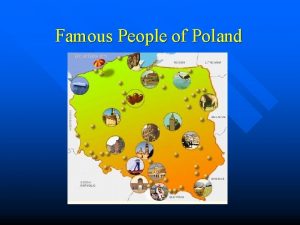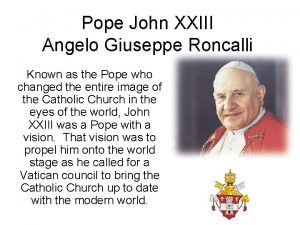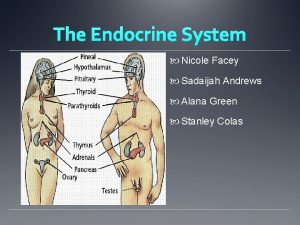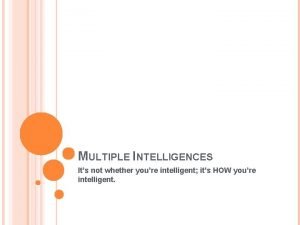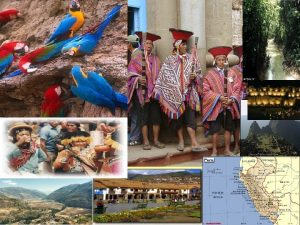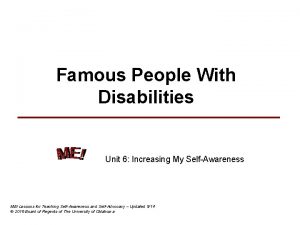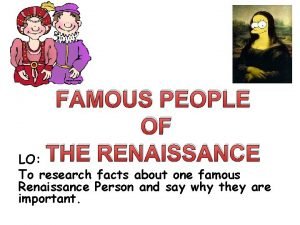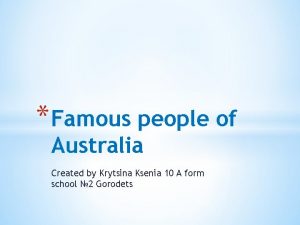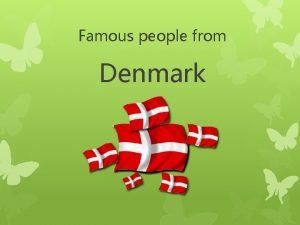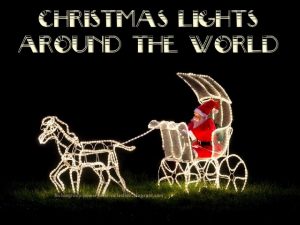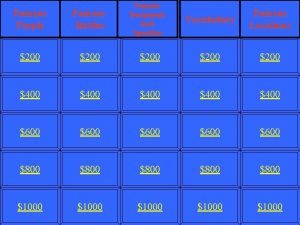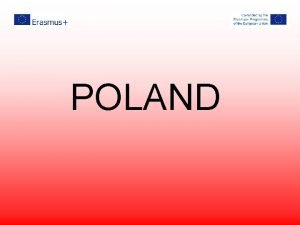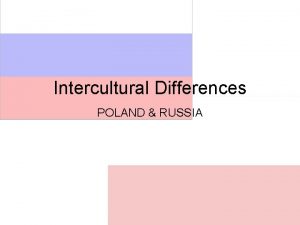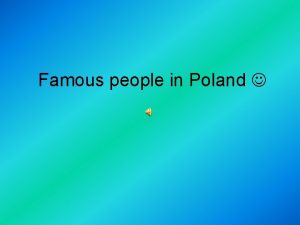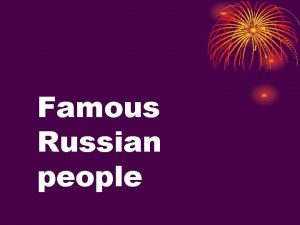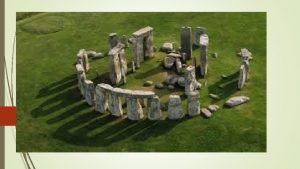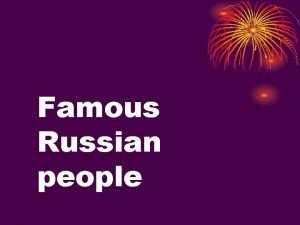Famous People of Poland Pope John Paul II











- Slides: 11

Famous People of Poland

Pope John Paul II


Blessed Pope John Paul II ( born Karol Józef Wojtyła (Polish) 18 May 1920 – 2 April 2005), known as Blessed John Paul II[ since his beatification on May 1, 2011, reigned as Pope of the Catholic Church from 16 October 1978 until his death on 2 April 2005, at 84 years and 319 days of age. His was the second-longest documented pontificate which lasted 26 years and 168 days. Pope John Paul II is the only Slavic or Polish pope to date, and was the first non-Italian Pope since Dutch Pope Adrian VI(1522– 1523). John Paul II has been acclaimed as one of the most influential leaders of the 20 th century. It is widely held that he was instrumental in ending communism in his native Poland eventually all of Europe. Conversely, he denounced the excesses of capitalism. John Paul II is widely said to have significantly improved the Catholic Church's relations with Judaism , Islam the Eastern Orthodox Church and the Anglican Communion. Though criticised by progressives for upholding the Church's teachings against artificial contraception and the ordination of women he was also criticized by traditionalists for his support of the Church's Second Vatican Council and its reform of the Liturgyas well as his ecumenical efforts. He was one of the most-travelled world leaders in history, visiting 129 countries during his pontificate. He spoke Italian, French, German, English, Spanish, Portuguese, Russian , Croatian and Latin as well as his native Polish. On 19 December 2009, John Paul II was proclaimed venerable by his successor Pope Benedict XVI and was beatified on 1 May 2011.

Nicolaus Copernicus

Reconstructed face of Nikolaus Kopernikus

Nicolaus Copernicus (19 February 1473 – 24 May 1543) was a Renaissance astronomer and the first person to formulate a comprehensive heliocentric cosmology which displaced the Earth from the center of the universe. Copernicus' epochal book, De revolutionibus orbium coelestium(On the Revolutions of the Celestial Spheres), published just before his death in 1543, is often regarded as the starting point of modern astronomy and the defining epiphany that began the scientific revolution. His heliocentric model, with the Sun at the center of the universe, demonstrated that the observed motions of celestial objects can be explained without putting Earth at rest in the center of the universe. His work stimulated further scientific investigations, becoming a landmark in the history of sciencethat is often referred to as the Copernican Revolution Among the great polymaths of the Renaissance, Copernicus was a mathematician, astronomer, physician, quadrilingual, polyglot, classical scholar , translator, artist, Catholic cleric, jurist, governor, military leader, diplomat and economist Among his many responsibilities, astronomy figured as little more than an avocation —yet it was in that field that he made his mark upon the world.

Lech Wałęsa



Lech Walesa (born 29 September 1943) is a Polish politician trade-union organizer, and human-rights activist. A charismatic leader, he co-founded Solidarity (Solidarność), the Soviet bloc's first independent trade union won the Nobel Peace Prize in 1983, and served as President of Poland 1990– 95. Wałęsa was an electrician by trade, with no higher education Soon after beginning work at the Gdańsk (then, "Lenin") Shipyards, he became a trade-union activist. For this he was persecuted by the Polish communist government placed under surveillance, fired in 1976, and arrested several times. In August 1980 he was instrumental in negotiations that led to the groundbreaking Gdańsk Agreement between striking workers and the government, and he became a co -founder of the Solidarity trade-union movement. Arrested again after martial law was imposed and Solidarity was outlawed, upon release he continued his activism and was prominent in the establishment of the 1989 Round Table Agreement that led to semi-free parliamentary elections in June 1989 and to a Solidarity-led government. In 1990 he successfully ran for the newly re-established office of President of Poland. He presided over Poland's transformation from a communist to a post-communist state but his popularity waned. After he narrowly lost the 1995 presidential election his role in Polish politics was diminished. His international fame remains, however, and he speaks and lectures in Poland abroad on history and politics .
